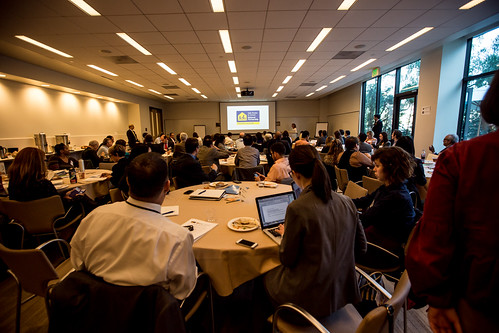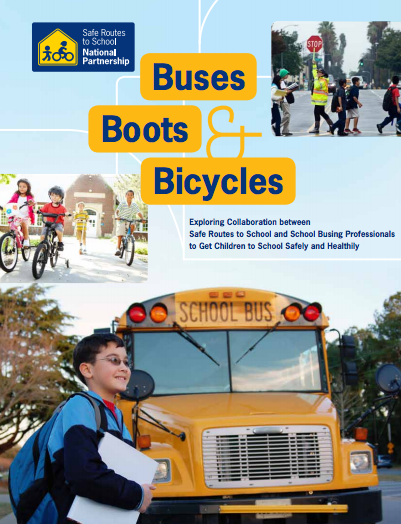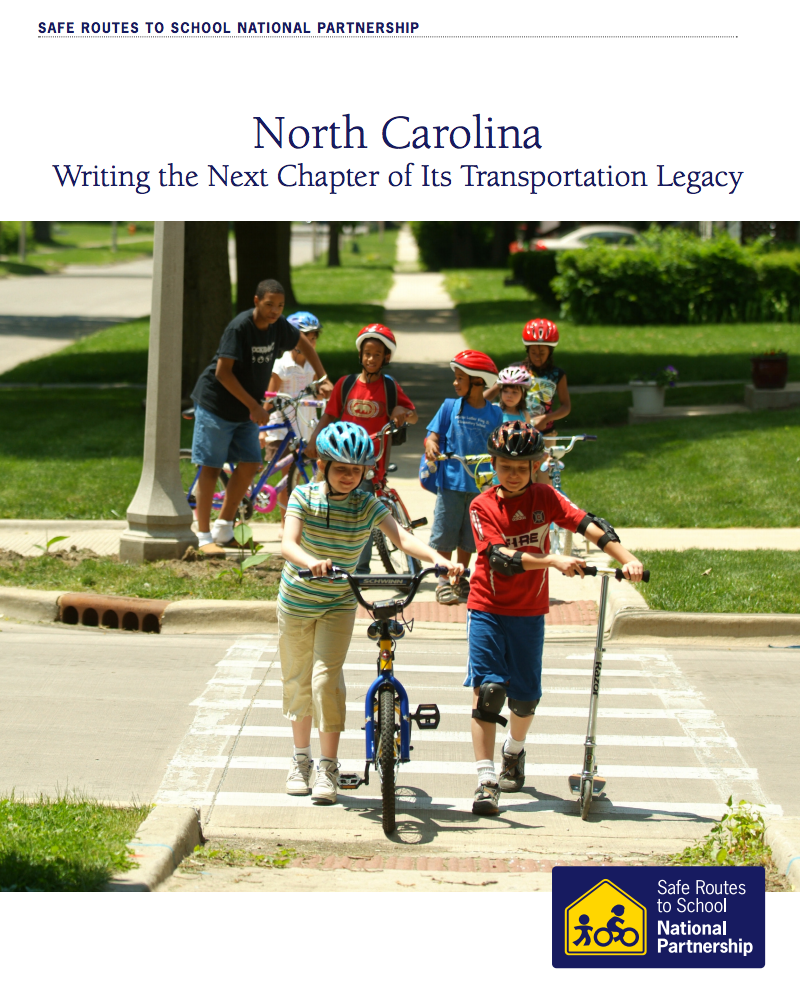
Co-Authors:
Eric Bruins, Los Angeles County Bicycle Coalition
Jessica Meaney, Southern California Policy Director, Safe Routes Partnership

Co-Authors:
Eric Bruins, Los Angeles County Bicycle Coalition
Jessica Meaney, Southern California Policy Director, Safe Routes Partnership
These briefings sheets were developed with funding support from the National Center for Safe Routes to School. The briefing sheets are intended for use by transportation engineers and planners to support their active participation in the development and implementation of Safe Routes to School programs and activities.
 The Portland, Oregon region, in many regards, is ahead of the curve when it comes to active transportation. The “Bike Bill” (ORS 366.514), passed more than 40 years ago by the Oregon Legislature in 1971, requires the inclusion of facilities for pedestrians and bicyclists wherever a road, street or highway is built or rebuilt.
The Portland, Oregon region, in many regards, is ahead of the curve when it comes to active transportation. The “Bike Bill” (ORS 366.514), passed more than 40 years ago by the Oregon Legislature in 1971, requires the inclusion of facilities for pedestrians and bicyclists wherever a road, street or highway is built or rebuilt.
This article analyzes the variation in bike commuting in large American cities,with a focus on assessing the influence of bike paths and lanes.
 There were two significant developments this month in Washington D.C for Safe Routes to School. First, the U.S. Department of Transportation (USDOT) released its proposed rule addressing safety on our roads.
There were two significant developments this month in Washington D.C for Safe Routes to School. First, the U.S. Department of Transportation (USDOT) released its proposed rule addressing safety on our roads.
This planning manual illustrates why planning for transit-oriented development that serves families is important for creating complete communities and how such integrated planning can be achieved.
Regular physical activity can reduce children’s risk of obesity and improve their classroom performance, but many schools provide few opportunities for students to be active. Schools can provide excellent opportunities for children to be physically active through regular recess.
 Today, most student transportation departments around the country focus primarily on getting students to school on yellow school buses. But student transportation isn’t just about school buses. Students are also getting to school by foot, bicycle, car, and public transportation.
Today, most student transportation departments around the country focus primarily on getting students to school on yellow school buses. But student transportation isn’t just about school buses. Students are also getting to school by foot, bicycle, car, and public transportation.
This fact sheet provides information about traffic fatalities from the National Center for Statistics and Analysis for 2010.
 This month many children are heading back to school. Like many children and parents at this time of year, I am excitedly nervous -- excited about the beginning of a new school year, and slightly nervous about the challenges that lie ahead.
This month many children are heading back to school. Like many children and parents at this time of year, I am excitedly nervous -- excited about the beginning of a new school year, and slightly nervous about the challenges that lie ahead.
This document provides guidance for implementing and evaluating Complete Streets.
 When I came to the Safe Routes Partnership more than a year and a half ago, I was encouraged by our founder Deb Hubsmith to do two things. First, find every way to raise the drum beat of equity in my work, and second, read profusely to gain best practices and tactics to push progress forward.
When I came to the Safe Routes Partnership more than a year and a half ago, I was encouraged by our founder Deb Hubsmith to do two things. First, find every way to raise the drum beat of equity in my work, and second, read profusely to gain best practices and tactics to push progress forward.
Each state DOT is required to develop a data-driven Strategic Highway Safety Plan for programming their Highway Safety Improvement fund. Some of this funding can be spent on bicycle and pedestrian safety for school children.
 This week, the Safe Routes Partnership published a new report, “North Carolina: Writing the Next Chapter of Its Transportation Legacy." The report is being released as the newest NC General Assembly convenes in R
This week, the Safe Routes Partnership published a new report, “North Carolina: Writing the Next Chapter of Its Transportation Legacy." The report is being released as the newest NC General Assembly convenes in R
This toolkit shares what lessons learnedfrom successful joint use agreements, offeringguidelines and templates for othercommunities looking to expand their accessto school recreational facilities.
The Safe Routes Partnership is pleased to support the For Every Kid Coalition in the Pacific Northwest region. For Every Kid is a growing coalition calling for Safe Routes to School for every kid in the Metro-area; vocal support from cities and school districts is an outcome of key partners coming together to promote the benefits and work with communities and we have been an active part of the leadership of this effort.
Local leaders agree: creating safe options to walk, bike, or ride the bus to school is critical to improving the health of kids.
This report summarizes discussion from the convening series "Unlocking the Playground: Achieving Equity in Physical activity Spaces" in four locations in CA in 2009.
 If you have been following our federal transportation updates for a while, this update may sound a bit like Groundhog’s Day. Yet again, Congress has voted to extend the MAP-21 transportation law and yet again, lack of funding is the culprit.
If you have been following our federal transportation updates for a while, this update may sound a bit like Groundhog’s Day. Yet again, Congress has voted to extend the MAP-21 transportation law and yet again, lack of funding is the culprit.
The calculator is fully customizable to local school districts and contexts